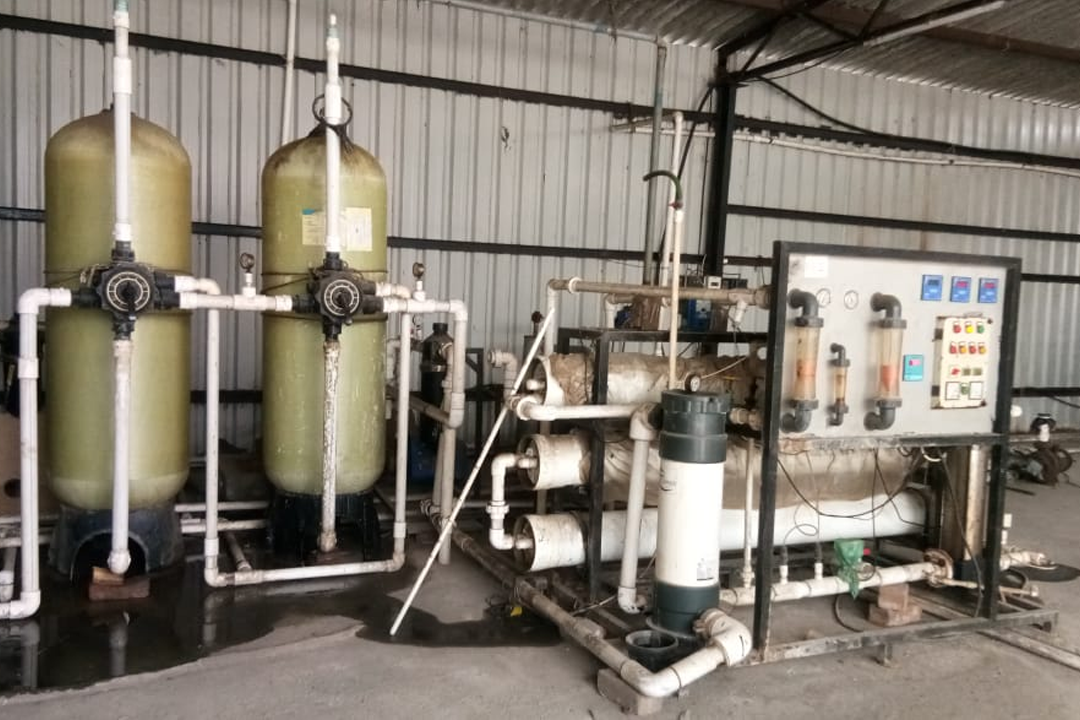Zero Liquid Discharge Plant

A Zero Liquid Discharge (ZLD) Plant is an advanced water treatment system designed to eliminate all liquid waste from industrial processes, ensuring that no wastewater is discharged into the environment. In ZLD systems, all water used in industrial processes is either reused or converted into solid waste, leaving no liquid effluent behind.
The core objective of a ZLD plant is to conserve water resources, reduce environmental impact, and ensure compliance with stringent regulations for wastewater disposal. These plants are essential in industries where water scarcity or water pollution is a concern, such as power plants, textile factories, petrochemical industries, and food processing units.
Key Components of a ZLD Plant
Pre-Treatment: This stage involves the removal of large particulates, oils, and greases from the wastewater through processes like sedimentation, filtration, and oil-water separation.
Primary Treatment: In this step, the water undergoes chemical treatment to remove dissolved solids, chemicals, and contaminants. This could involve flocculation, coagulation, or chemical precipitation.
Reverse Osmosis (RO): This is a membrane-based filtration process that removes dissolved salts and other impurities from water, effectively separating the clean water from the concentrated waste stream.
Evaporation: The remaining brine from the RO process is further treated using evaporators, which boil the water to separate out the pure water vapor. The vapor is then condensed and collected as high-quality water for reuse.
Crystallization: The final step involves the crystallization of salts from the concentrated waste stream, forming solid waste that can be disposed of safely or used for other industrial applications.
Water Recovery: The goal of a ZLD system is to maximize water recovery. A significant portion of the water treated can be reused for industrial processes, minimizing the need for fresh water intake.
Benefits of Zero Liquid Discharge
Water Conservation: ZLD minimizes freshwater consumption by ensuring that water used in industrial operations is completely recycled.
Environmental Protection: By eliminating wastewater discharge, ZLD plants reduce the risk of water pollution and contamination of natural water bodies.
Regulatory Compliance: ZLD helps industries meet stringent environmental regulations and avoid penalties for wastewater discharge violations.
Cost Savings: Over time, ZLD can reduce the cost of sourcing fresh water and the expenses associated with wastewater treatment and disposal.
Sustainability: ZLD supports sustainable industrial practices by reducing the environmental footprint and promoting efficient resource management.
Applications of ZLD Plants
Textile Industry: ZLD is widely used in textile and dyeing industries, where large volumes of water are used and polluted with chemicals and dyes.
Power Plants: Power generation facilities use ZLD systems to treat cooling tower blowdown water, which contains high levels of dissolved solids.
Food and Beverage Industry: This industry often generates high volumes of wastewater rich in organic matter, which ZLD systems can treat for reuse.
Pharmaceutical and Chemical Manufacturing: These industries generate wastewater that often contains hazardous substances, making ZLD essential for waste treatment and water recovery.
Conclusion
A Zero Liquid Discharge plant plays a crucial role in the efficient management of water resources, ensuring that industrial operations can run sustainably while minimizing environmental impact. By recovering and reusing water and reducing the need for freshwater intake, ZLD plants are becoming an essential part of industries that prioritize eco-friendly and resource-efficient processes.
Lenntec – Water Treatment Solutions for a Cleaner, Safer Future!
© 2024 Created with Lenntec Team.
Service
Reverse Osmosis (RO) Plant
Water Softening Plant
Ultra Filtration Plant
Wastewater Treatment Plant
Zero Liquid Discharge Plant
Support
About Us
Privacy Policy
Terms and Conditions
Contact
FAQ
Contacts
(352) 683-0000
34606 Spring Hill, Florida, United States

